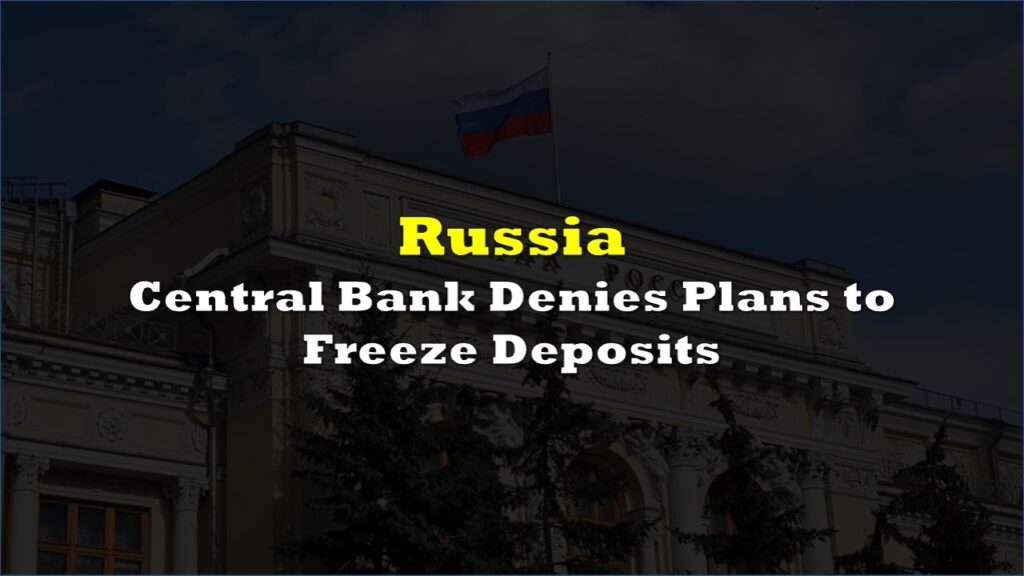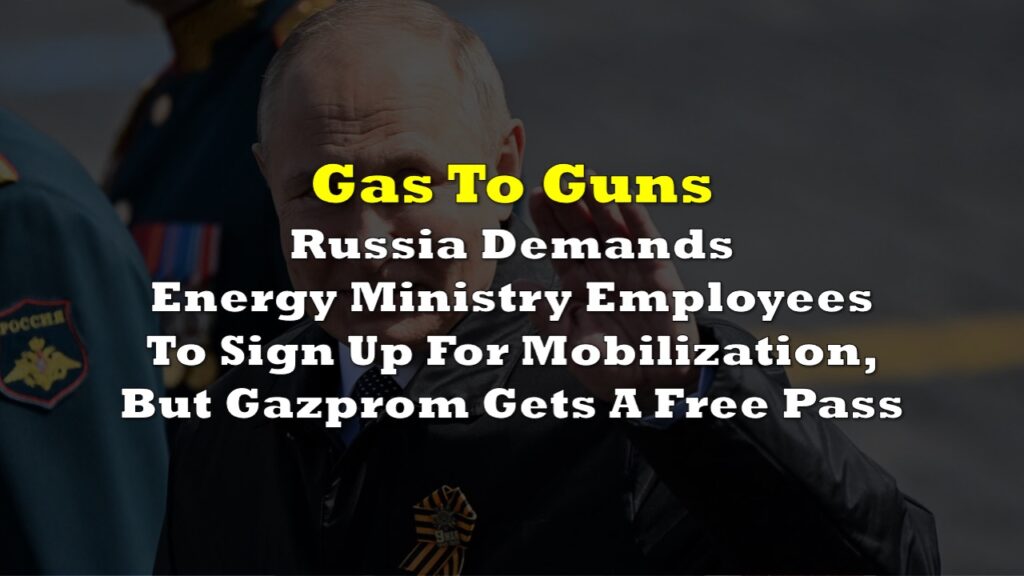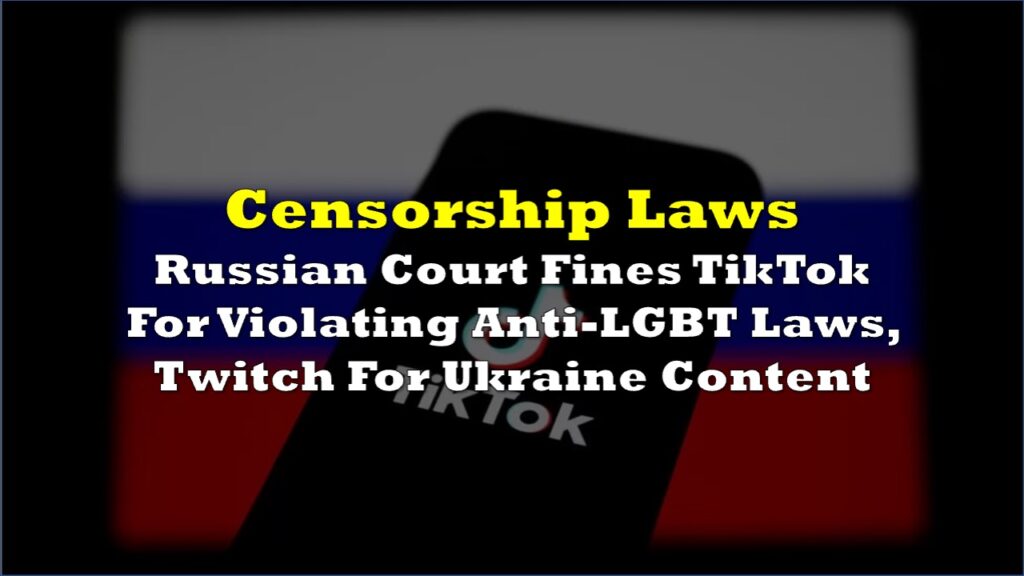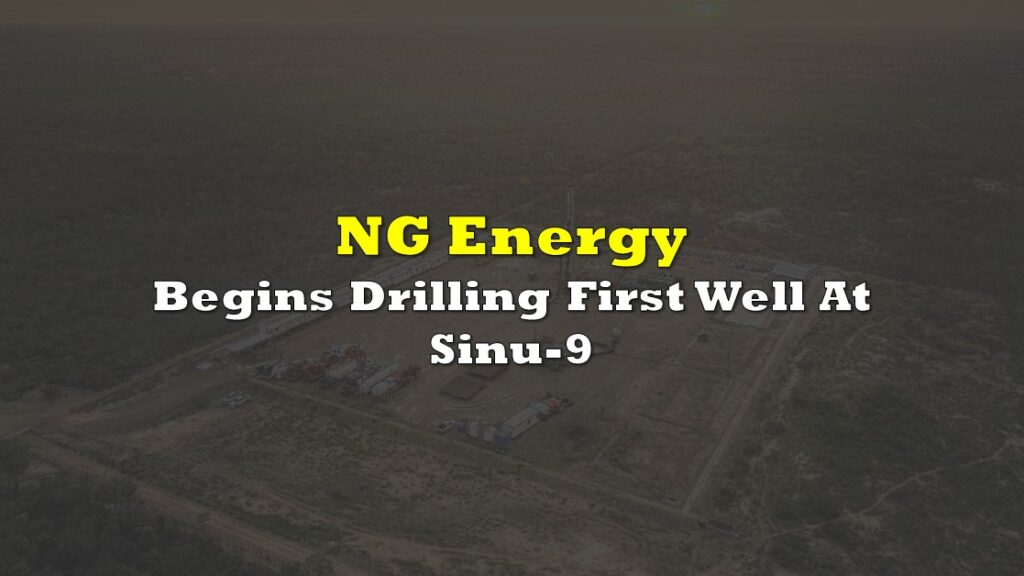Russian President Vladimir Putin decided to use Russian natural gas— the European Union’s Achilles heel— to prop up the ruble amid a cascade of crippling western sanctions.
Since the ruble plummeted to a record low in early March, the currency rebounded only modestly, and is currently sitting at around 100 per US dollar after sanctions imposed by the EU and the US crippled the country’s financial and economic sector. However, Putin isn’t done revolting against the West’s restrictions, and is now demanding that Russian energy-dependent unfriendly states pay for their much-needed natural gas supplies via rubles.
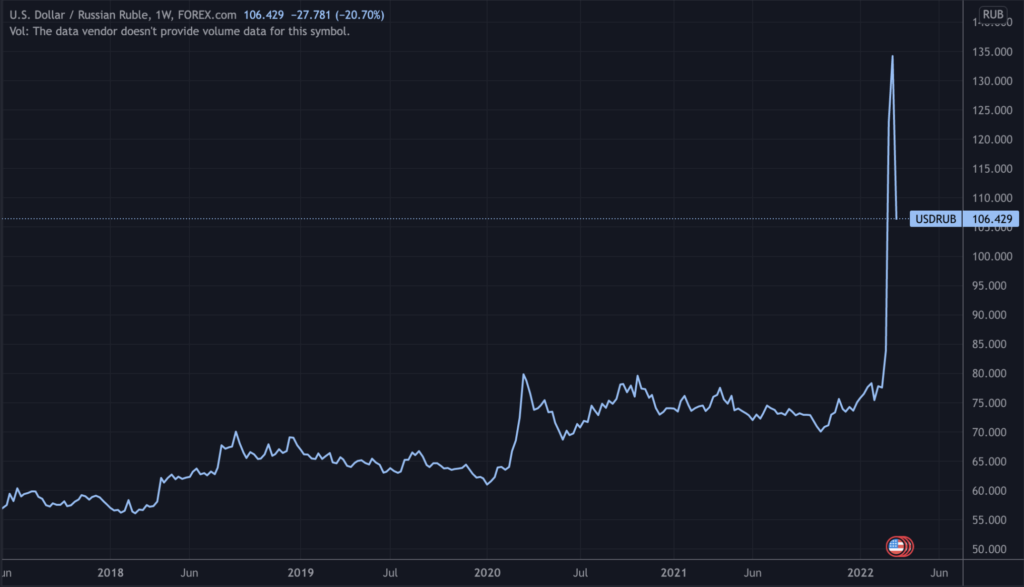
On Wednesday, during an address to the country, Putin announced that states hostile to Moscow, such as the the US, UK, and countries within the EU, will have to pay for their Russian gas imports in rubles. The president instructed Russia’s central bank to devise a payment mechanism for ruble transactions as early as next week.
CURRENCY WARS: Putin just announced gas payments from ‘non-friendly countries’ will now be required to be made in Rubles pic.twitter.com/xzR9ISFNpI
— Jack Posobiec 🇺🇸 (@JackPosobiec) March 23, 2022
Following the announcement, the ruble pared earlier losses, while the price of natural gas soared by almost 30%. The latest move marks yet another escalation of using Russia’s vast energy supplies as a political weapon in the Ukraine conflict. Although details surrounding the proposed transaction arrangements remain unclear, it is becoming increasingly apparent that Russia has the upper hand when it comes to the West’s dependence on the country’s resources.
By forcing nations to exchange natural gas for rubles, Putin could save the country’s currency from completely devaluating and replenish foreign currency holdings. However, Italy— Russia’s second largest gas importer—does not appear too thrilled, announcing that it’s not inclined to pay in rubles because it could help Moscow recoup sanctioned reserves. “My view is is that we pay in euros because paying in rubles would be a way to avoid sanctions, so I think we keep paying in euros,” said Italy’s economic advisor to the prime minister, Francesco Giavazzi, as cited by Bloomberg.
*ITALY NOT INCLINED TO PAY RUBLES FOR RUSSIA GAS: DRAGHI ADVISER
— zerohedge (@zerohedge) March 23, 2022
Information for this briefing was found via Interfax and Bloomberg. The author has no securities or affiliations related to this organization. Not a recommendation to buy or sell. Always do additional research and consult a professional before purchasing a security. The author holds no licenses.






